
What is an Internet Booking Engine?

By Rebecca Somes

An Internet Booking Engine (IBE) is a software that revolutionizes the way travel companies operate. It empowers customers to book travel products and services online, enhancing their convenience. This user-friendly platform allows travellers to search for flights, hotels, car rentals, cruises , and other travel-related services, compare prices, and make reservations directly through the company’s website. IBEs streamline the booking process, providing real-time availability and pricing information and secure payment processing capabilities. They are not just tools, but crucial assets that drive revenue for travel businesses, making them indispensable in the modern travel industry.
What Exactly Does an Internet Booking Engine Do?

Price, rates, and availability are managed within suppliers’ reservation systems, such as hotel companies. These systems define the cost of a room per night or day, establish policies, and specify occupancy limits. In addition to this fundamental information, various other details are stored within the reservation system or in the content management system (CMS) of the Internet Booking Engine (IBE). Some content may also be housed within the CMS of the website on which the IBE operates.
An Internet Booking Engine is a master of organization. It takes the complex web of information about hotels, their facilities, and amenities, availability, and prices, and presents it to the user in a simple, easy-to-understand format. It’s like having a personal travel agent at your fingertips. Through this intuitive pathway, users can select a room and proceed with the booking by entering their details, all with just a few clicks.
History of the Internet Booking Engine

To understand the evolution of internet booking engines , it makes sense to look at the history of reservation software first. Believe it or not, the first Airline Reservation System dates back to 1946 and was created by American Airlines. The Electromechanical Reservisor (the name doesn’t quite roll off the tongue, does it?) was comprised of temporary storage based on magnetic drums and solely depended on human operators to look up the information. The system was so complex that only certain American Airlines employees were taught how to use it. Ticketing agents had to call a booking office. Those operators would then contact a team operating the Reservisor, who read the results over the phone. Agents could not directly query the system, creating a prolonged process.
Unsurprisingly, the complexity of the Electromechanical Reservisor became unmanageable, prompting airlines to seek ways to improve their software. In the 1970s, some airlines took the initiative to develop Central Reservation Systems (CRS) that could be used by agents. However, these early systems had a drawback-they could only handle bookings for one airline, necessitating each airline to have its own CRS. This limitation posed a challenge, highlighting the need for more efficient and unified reservation systems.
This drawback was soon resolved by Global Distribution Systems (GDS) in the late 1970s. This was the first system of its kind to offer integration with multiple airlines and allow travel agents to book directly from them all. The next logical step in the process was to allow customers to book their travel themselves without any intervention from external suppliers or travel agents. This heralded the advent of the first Internet booking engine .
Since the early days, internet booking engines have evolved and become increasingly complex. Rather than turning to airlines and hotels individually, travel agents, tour operators, and customers themselves are looking for aggregated systems to search for multiple travel components in one search.
Global Distribution Systems to Online Booking Engines

The landscape of travel bookings has grown significantly, with online booking platforms playing a big role in enabling vacation reservations for travellers worldwide.
Global Distribution Systems (GDS) have been at the heart, serving as centralised platforms connecting travel providers such as airlines, hotels, car rental companies, and tour operators with travel agents and online booking platforms. These systems enable real-time inventory, pricing, and availability access, streamlining the booking process and ensuring accuracy and efficiency.
Online booking software has revolutionized how tour operators manage and sell travel packages. These solutions enable operators to showcase their offerings, manage bookings, and process payments efficiently, thereby streamlining their operations and enhancing customer satisfaction.
Websites are the primary interface for travellers to explore accommodation options and make reservations. Booking engine solutions integrated into hotel websites provide users a user-friendly interface to search for availability, compare prices, and complete their bookings with ease.
Effective channel management is essential for maximizing visibility and revenue. Booking engine solutions offer robust channel management features, enabling travel providers to distribute their inventory across various online channels, including travel agents, OTAs (Online Travel Agencies), and direct booking platforms.
Travel agents play a vital role in assisting travellers with their bookings, and booking engine solutions empower them with the tools and resources they need to provide efficient and personalized service. With access to comprehensive booking platforms, travel agents can search for available options, compare prices, and make reservations on behalf of their clients.
Modern Booking Systems
The booking process has been streamlined and simplified with the introduction of Internet Booking Engines (IBE), which provide users with a pathway to search, compare, and book travel services online. These platforms aggregate information from various sources, including GDS, hotel booking systems, and airline reservation systems, to offer users a comprehensive selection of options.
Traveltek’s flagship travel booking engine, iSell , offers just that. iSell was developed to help bookers sell travel products in the most efficient way possible. Unlike the earlier travel technology platforms, with iSell there’s no need to jump between systems. The cloud-based platform connects the industry’s largest network of buyers and sellers worldwide with links to over 300 suppliers, including all the major GDS. All travel components are available within B2B, B2C and B2B2C environments. Thanks to a series of XML connections, iSell is automated and fully integrated, making manual data inputs a thing of the past. With live pricing and availability, advanced search filters, and dynamic packaging tools , which are just some of the numerous benefits of the platform, this advanced system is a far cry from the Electomechanical Reservisor!
Booking engine solutions have revolutionized the way travel bookings are made, offering convenience, efficiency, and accessibility to travel worldwide. Whether booking flights, hotels, cruises, or tour packages, these platforms provide users with the tools and resources they need to easily plan their journeys. From hotel booking engines to airline reservation systems, the travel industry has embraced technology to enhance the booking experience for travellers across the globe. Whatever travel product you’re selling, your business could benefit greatly by incorporating an internet booking engine. Let’s see the advantages of implementing an online distribution and booking solution to your company.
Or, to find out more about how our internet booking engine could help your business grow, click for info on our award-winning platform, iSell.
24/7 Opportunities
Travellers who decide to rent a car or book a room, an excursion or an activity don’t want to wait until you’re in the office to help them. They’re looking for an immediate response and confirmation. Using an online booking engine means that your company is open 24 hours a day, seven days a week, an easy way to satisfy the customer from the outset.
Faster And Easier Payments
Any worries related to safe online payment methods are assuaged with an online booking system. The use of secure payment gateways with data encryption builds trust in customers. If you work in a B2B environment, you can also apply different conditions to your sales. There are also booking engines that offer multi-currency modules, enabling you to operate in different currencies without requiring a sales channel.
Hang Up the Phone
Online booking minimises potential customers’ dropout rate, thanks to the fact that all information and booking details are always available. Customers who need to call a company to make a booking often lose patience if they are assisted by answering machines or subjected to awful hold music. In many cases, these time-wasting activities become missed business opportunities.
Automation Is King
Many travel processes depend on manual intervention, which can translate into errors, inaccuracies and duplication of efforts, all of which pressure top-line sales and business costs. Automating the administrative processes currently performed by your travel agency staff will free them up to do higher-value work, ultimately maximising sales and conversion rates. Internet booking engine systems automatically receive the booking and all the required customer information. Also, they send the guests automatic emails to confirm the booking and can issue reservation reminders.
Finally, such systems can check availability quickly and easily, responding immediately to customer enquiries.
Upselling Opportunities
Using a web-based system allows you to include additional services or products during online booking and payment. This way, you can earn additional ancillary revenue while offering your customers a wide range of choices.
The Power of Booking Engine Solutions

Booking engine solutions have revolutionized the way travel bookings are made, offering convenience, efficiency, and accessibility to travel worldwide. Whether booking flights, hotels, cruises, or tour packages, these platforms provide users with the tools and resources they need to easily plan their journeys. From hotel booking engines to airline reservation systems, the travel industry has embraced technology to enhance the booking experience for travellers across the globe.
If you’re in the market for a new internet booking engine, it’s important to choose a provider who understands the market and your business objectives. Traveltek’s flagship booking engine, iSell, allows users to sell travel products in the most efficient way possible.
Unlike many travel technology platforms, with iSell there’s no need to jump between systems. The cloud-based platform connects the industry’s largest network of buyers and sellers worldwide with links to over 300 suppliers, including all the major GDS. All travel components are available within B2B, B2C and B2B2C environments. Thanks to a series of XML connections, iSell is automated and fully integrated, making manual data inputs a thing of the past. Plus, with live pricing and availability, advanced search filters, and dynamic packaging tools, which are just some of the numerous benefits of the platform, the system provides travel professionals with the most innovative booking solution on the market.
How to Find Clients as a Travel Agent
What is the ultimate outcome of a data warehouse.
- Why Choose Us
- Terms of Service
- Cookie Policy
Travel Technology Products
- CruiseConnect
- iBos – Administration
- iSell – Search & Book
- TourTek – Tour Packaging
Travel Software Solutions
- Cruise Booking Engine
- Dynamic Packaging
- Data Warehouse Reporting
- RPA – Automation
- Travel Agent White Label Solutions
- Tour Operator Software
- Travel App Development
- Travel Agency Web Design & Development
- Travel API Provider
- Travel API – 300+ Suppliers
- Tour Operator API
- Payment Gateway API
- Flight Airline API
- Cruise Websites
- Meet the Team
Digital Transformation 2025

Our presentation: Practical Ways to Improve Business Efficiency (for DMCs and Tour Operators)
Maria Bondarenko VP Product, Shareholder
Travel Booking Engines: Solution Landscape and Functionality
A booking engine is the go-to instrument for modern online travel product distribution. This software component is essential for processing various online transactions related to airfare, hotel bookings and other types of travel reservations.
Travel businesses from around the world are using various kinds of booking engines to automate their core operations with limited intervention of human staff. Below, we will examine their capabilities and how they differ depending on the type of travel business or business model.
Internet booking engine (IBE)
Essentially, the Internet booking engine (IBE) is a software component that mediates between travel buyers and sellers. Foremost, it links with customer interfaces to receive search queries. Then it also connects with systems used by travel product suppliers — the likes of hotels, airlines, car rental businesses — to manage and distribute their inventories.

Customer interfaces can be websites, mobile apps, or travel provider chatbots connected with a booking engine through an API layer. This way customers can search and book flights, hotels, packages, transfers, insurance, and other travel products.
The main solutions involved on the part of suppliers are:
- Global Distribution Systems (GDSs);
- Hotel PMSs;
- Airline booking solutions.
A booking engine uses travel APIs to access these systems and find products that match a customer’s query. It also checks their availability and prices before moving on with a reservation. Then the reservation is confirmed by the system — and the booking is complete. IBE then creates a final booking details file and sends it out to the customer via email.

Looking to create a brand-new booking engine or upgrade an existing one? Let’s discuss your requirements.
Important features
In addition to their main function, contemporary travel agency booking engines often incorporate the features below to boost sales.
Content mapping
Booking solutions obtain information from various sources and sometimes encounter duplicate entries in search results. This is due to a variety of suppliers — bedbanks, consolidators, GDSs, hotels, etc. — providing inconsistent data. Because of this, one and the same room or other inventory elements can pop up simultaneously under different names. To fix this problem, booking engines need to use either built-in or external mapping tools for inventory validation.
Read more about mapping solutions in our separate article [here] .
Dynamic packaging
This functionality enables clients to combine various travel items — rooms, flights, car rentals or excursions — within the same booking flow.
Payment gateway connections
Booking engines are incapable of handling booking payments on their own. They usually connect to multiple payment gateways for providing secure online transactions. As soon as a particular travel product is selected for booking, the IBE makes a redirect to the required payment gateway.
Multi-lingual support
Travel businesses tend to accept booking requests from various countries around the world. Thus, their booking engines need to be translated into multiple languages to make things convenient for international audiences.
Booking management
This functionality serves to modify bookings — fix dates, introduce additional products post-booking, enable booking cancellations, etc.
What makes travel booking engines different?
Various types of booking engines may seem to work in the same way, but they actually have different processes under the hood, based on various criteria, such as:
- Customized business rules. These rules determine the way how a booking engine searches for options and how it ranks them for the customer.
- Pricing rules. These are usually adjusted by a revenue manager or another specialist, who decides how much to add to the net prices in the form of service fees.
- Differences of booking engines based on supplier types . Each supplier has its own way of doing things which influences the internal booking engine workflow.
- Extra features and adjustments. In order to achieve the best results, any booking engine needs to be suited for the specific needs of a particular company.
Also, it’s worthy of mentioning that booking engines differ. In the sections below, we’ll examine how IBEs differ by business model, travel company, and the products offered.
Internet booking engine business models?
Depending on the supported business model, IBEs can be business-to-customer, business-to-business and business-to-enterprise.

Business-to-customer (B2C) booking engines
B2C engines let end users book travel products directly from the provider via a specifically designed customer-facing website. They are used by hotel websites, hotel booking systems, airlines, online travel agencies (OTAs) and other businesses. In addition to the basic functionality, most IBEs tend to have the following essential features as well:
- user-friendly UI;
- built-in shopping cart;
- recommendation of travel products based on search and booking history;
- alerts sent to the customer confirming processed bookings.
B2B booking engines
B2B engines let travel wholesalers, destination management companies and OTAs distribute large volumes of travel products and services to other travel companies — smaller agencies or corporate entities. The buyers receive special rates that are not available in the B2C model, and some extra features, such as:
- adjustable commissions and markups;
- ability to book without immediate payments using a credit limit;
- and creating PDF booking confirmations with the distributor’s branding.
B2B clients — smaller agencies — gain access to GDS content using the IBE owner’s (host agency’s) login. Using this option, they are able to avoid costly supplier contracts they cannot afford. They also don’t have to spend on ARC (Airline Reporting Corporation) or IATA accreditations certifying the right to flight ticket issue. This part is covered by the host agency.
Travel Booking Engine Software
Comprehensive search&book automation solutions for Tour Operators, DMCs, TMCs, Wholesalers and more…

Corporate (B2E) engines
Corporate IBEs are built according to the requirements of travel management companies (TMCs) and their enterprise clients. A software solution enabled by a B2E engine allows employees to make business trip reservations at agreed pricing on behalf of their business entity. Business rules function in line with the company’s travel policy and might incur spending limits or other limitations depending on the employee.
Multi-channel booking engines
Some businesses may combine several business models within a single booking engine. Upon registration, end clients, travel agents and business customers gain access to a set of features, interfaces, and rates that are specifically designed for them. In particular, a hotel website can render various prices for the same room to individual tourists or companies that put out large amounts of gross sales.
But despite the actual business model, online booking engines for direct travel suppliers (hotels, airlines or else) will be different compared to the ones designed for travel middlemen — DMCs, OTAs, consolidators and other 3rd-party distributors.
IBEs for travel distributors
Thanks to extensive development of the Internet, airlines and hotels can be quite efficient in reaching out to their clients directly. But nevertheless, numerous 3rd-party middlemen — TMCs, wholesalers, agencies, tour operators, online travel agencies and so on — are still a key element for the travel service distribution landscape. Their success and performance largely rely on how well they are presented online and how functional their booking engines are.
Similar to supplier IBEs, the booking engines for middlemen can make use of one of three general business models (B2C, B2B, B2E) or a combo of them, while offering different business conditions to the clients of each category.
Based on the travel services provided, travel company IBEs can be:
- flight booking engines with automated connections to key GDSs, airfare consolidators, low-cost carriers and other airfare providers;
- hotel booking engines making use of diverse hotel APIs for reaching out to GDSs, bedbanks, travel marketplaces or various extranets supporting directly negotiated hotel contracts;
- car hire engines interconnected with multiple car rental API interfaces;
- cruise booking engines running on automated connections to river and ocean cruise lines, along with cruise consolidators;
- activities booking engines supporting connection to various 3rd-party tour and attraction providers; and
- compound booking engines designed for selling multiple travel products.
The majority of OTAs and tour operators run their own complex engines supporting multiple travel products for buying a fully stacked trip. However, small agencies can start operating with a single module — for example, air booking — and later add hotels, cars and other products as the business grows in size.
Launching complex travel industry booking engines can be quite labor-intensive, taking months to complete all the necessary pre-launch arrangements. But it is always possible to cut down the time-to-launch period by finding a turnkey solution adjustable to specific business needs.
Hotel booking engines
Hotel booking engine usually forms a constituent part of the hotel’s property management system (PMS) and is often an element of a channel manager — a specialized solution which supervises all hotel bookings processed via multiple channels: OTAs, GDSs, bedbanks, etc.
The hotel IBE is used to process direct online reservations coming from the dedicated hotel website. In addition, hotel booking engines:
- connect and sync with the property’s social media;
- facilitate cross-selling (promotion of extra services) at the time booking is made;
- can be used to distribute discounts and promo codes;
- display the best rates compared to other distribution channels like OTAs; and
- send notification emails regarding booking confirmation, pre-arrival, post-departure and so on.
Customized solutions
All businesses are unique with regard to their individual business circumstances and requirements. That is why chances are high that none of the existing solutions available on the market will properly match your business. In such situations, it is worthy to take into consideration a fully custom booking engine solution. Although it may take longer to launch and might be more costly initially, this option will pay off in the long run by being more flexible and aligning better with the specifics of your business.
Related Case Study

Innovative Hotel Booking Engine for an Ambitious Saudi Travel Startup
Check out how GP’s specialists found the right technology to automate the entire search and booking flow built around a unique marketing idea.
Launching your own IBE: options to go online
The travel businesses that are just getting ready to launch their first booking website have several options to choose from.
A white label solution
White label engines are ready-to-use and can be customized to reflect your preferred look&feel. They match the requirements of smaller companies that are quite limited in resources and have shorter launch timeframes. The major issue here though is less flexibility in terms of new integrations and features.
Integrate content aggregator APIs
Rather than building connections to each of your suppliers individually, it is possible to implement travel APIs aggregating content pulled from numerous sources simultaneously. In this case, though, it is most likely you will need expert assistance from an external technology partner to handle the applicable integration activities.
A tailor-made booking engine on top of a basic solution
In case you seek utmost flexibility and customization, it’s recommended to build up your implementation on top of an existing minimalistic solution interconnected with specific travel suppliers, thus eliminating redundant integrations. This seems to be the golden mean between a unique solution and practicability.
But anyway, the final choice of engine setup option depends on your available resources, stack of requirements and presence of control over the booking workflows you want to work with.

Related posts

Get to know why NDC was introduced into the world of travel and learn all the intricacies behind it for airlines, global distributions systems, OTAs, and anyone in travel.

Discover the secrets to a seamless travel booking experience! Our experts reveal how top-notch web design can enhance user satisfaction, boost conversions, and keep visitors coming back.

The visual aspect plays a vital role in tour operator software, as travelers may choose your services judging by the general appeal and functionality of your website. Check how you can increase conversions with wise design solutions.
Get in Touch with Us!
Next steps after filling out the form:
- Please expect one of our travel tech consultants to reach out to you within 24 hours.
- Next, we will arrange an introductory meeting, to learn more about your challenges.
- We proceed to analyze your scope of requirements, and we are open to sign an NDA if necessary.
- Our travel tech consultant will prepare a formal project implementation proposal within 2–5 days after it’s taken to work.
Leave your request
We will contact you shortly
Thank you for your request!
We will get back to you as quickly as possible
Get latest insights from our travel tech experts!
Join 200+ travel fellows! Get GP Solutions' latest articles straight to your inbox. Enter your email address below:
The presentation has been sent to your email address!
Transforming travel services and operations to new heights
Free download for mac / windows, download for other desktop os, innovative tools that get faster results.
otti SaaS presents a clean interface that brings your effort to center stage. Making PNR's less challenging and time consuming with a clear and simple workflow. Supporting Amadeus, Worldspan and Sabre, otti SaaS reduces time spent searching and allows more time to sell.

From startup to enterprise, otti SaaS tools provide a solution for every team and company unleash their pull potential.
Data Privacy by Design
otti SaaS is built following the GDPR core concepts: Privacy and Security by Design and by Default. We’re applying GDPR standards to all data not just EU personal data. All our partners are GDPR compliant.
PNR Decoder
Takes your difficult PNR's and turns them into clean, effortless and user-friendly output tables. Quick to recognize passengers name, flight number, airline and service class. Simply copy and paste into email template or web base. Reduces time and improves communication of travel plans.
Task Manager
Better communicate among all individuals involved in your business. Be productive and never forget important dates like void and cancellations periods. By using our Task Manager you will be able to prioritize and always stay on track with yours and your team's tasks.
Booking Management
Keep your booking flow under control. From offer to booking, invoicing and everything between or after, otti helps you to stay organized and proactive for your customers. Remove endless mail threads by using our Booking Flow. Let otti do the heavy lifting for you.
Notification
Email or push notifications are real-time updates that can be triggered for a number of reasons. Internal notifications are great for keeping agents informed with timely and relevant content. Don't like our templates? create your own or ask us to create it for you.
White Label
Introduce your company logo and match corporate colors. Remove, edit and modify information automatically, append Terms and Conditions, add email signatures and more. Contact us for more details.
otti SaaS adopts pay-as-you-go approach
Based on your use case, otti SaaS offers the next standard pricing plans:
- 25 $ / user (Portal)
- 0.045 $ per flight status (API only)
- 0.050 $ per decoded GDS enhanced data (API only)
- 0.032 $ per non-GDS flight. (API, Manual Input)
otti SaaS integrates seamlessly with your existing services and applications such as:
Stay in the know
Never miss out updates, offers and useful tips for getting the most out of our products.
Request quote
Contact support.
What is an integrated booking engine (IBE)?
An Integrated Booking Engine (IBE) is a software solution used by travel agencies, airlines, hotels, and other businesses in the travel and hospitality industry to facilitate the booking of travel-related services directly through their website or application. Key features of an Integrated Booking Engine typically include: Search and Booking Functionality: Users can search for flights, hotels, rental cars, or other travel services based on criteria such as destination, dates, and preferences. Once the desired options are found, users can book and pay for their reservations securely online. Real-Time Inventory Management: The IBE integrates with the inventory systems of airlines, hotels, and other service providers to provide up-to-date availability and pricing information to users. Dynamic Pricing and Promotions: The IBE can offer dynamic pricing based on factors such as demand, availability, and user preferences. It may also support the implementation of promotional offers, discounts, and loyalty programs to incentivize bookings. Multi-Channel Support: The IBE is often designed to be accessible across multiple channels, including websites, mobile apps, and social media platforms, to reach a broader audience and maximize booking opportunities. Secure Payment Processing: The IBE includes secure payment processing capabilities to enable users to make online payments using various payment methods, such as credit cards, debit cards, or electronic wallets. Customization and Branding: Businesses can customize the look and feel of the IBE to align with their branding and user experience standards. This includes the ability to add logos, colors, and branding elements to the booking interface. Reporting and Analytics: The IBE may provide reporting and analytics features to track booking metrics, monitor performance, and gain insights into user behavior and preferences. Overall, an Integrated Booking Engine streamlines the booking process for travelers and helps businesses increase efficiency, drive sales, and enhance the overall customer experience in the highly competitive travel industry. When it comes to Vivere Stays hotel clients, they have their own IBE integrated in their PMS or bought separately from a third party provider connected with their PMS. In both cases it allows them to sell their inventory directly through their website without risking over-bookings and saving commissions.
Recommended content for you
Travel booking engines: types, functionality, and integrations, hotel property management systems: products and features, central reservation system for hotels: crs functionality explained, hotel channel managers: key providers and how to choose a channel manager, hotel booking engine: how to boost direct bookings.
Our website uses cookies to ensure you get the best experience. By browsing the website you agree to our use of cookies. Please note, we don’t collect sensitive data and child data.
To learn more and adjust your preferences click Cookie Policy and Privacy Policy . Withdraw your consent or delete cookies whenever you want here .
Get in Touch
Yes, I understand and agree to the Privacy Policy
- Dictionary Home
- Recently Added
- Terms of Use
- Privacy Policy
IBE. Abr . Internet booking engine .
To find the abbreviation, acronym, or term you’re looking for, use the Search box (below) or click on any letter (above).
This site is Copyright© 1999-2022. All rights reserved.
Serving the travel industry since 1999
Booking.com or the hotel website… what’s the difference?
While the uninitiated newbie might think the source of a reservation matters little, the experienced hotelier knows not all bookings are created equal. With online booking engines demanding commissions of up to 20%, both large and small hospitality brands have started looking for ways to increase direct, commission-free bookings. The first step to reach this goal is to start using an IBE (internet booking engine).
Are you wondering what that is? Or do you already know, but are curious to find out how it’s different from a CRS (central reservations system) and channel manager (CM)? Then our recent interview with Maurits Seidl , Account Manager at Hoteliers.com , about everything IBE-related is the perfect place for you to start.

What is an IBE and what does it do?
An IBE or internet booking engine processes reservations directly through a hotel’s website. “For hotels, their webpage is often the best and most profitable booking source for obvious reasons: first, because there is no commission on these reservations, and second because they are generated without the help of a third party,” Maurits explains.
Another great thing about an IBE is, that it can connect directly with a hotel’s central reservations system (CRS), a channel manager or even a hotel’s property management system (PMS). This saves time and energy as details don’t need to be keyed in manually but can be transferred easily via an XML connection.
Ideally, a hotel would use a two-way interface where the PMS and CRS exchange information about rates and available inventory with each other. In this scenario, the CRS would be able to connect with various distribution channels (i.e. OTAs). However, since there are many smaller channels who cannot connect with the CRS, a CM is necessary to provide them with up-to-date rates and inventory.
If there are not that many differences between an IBE, a CRS and CM, you might be wondering, why having an IBE is so important for hotels. “An IBE is your direct marketing channel. This means bookings from there are uniquely your hotel’s and also have the lowest cost of acquisition,” Maurits highlights.
Getting your IBE seen
To get your IBE some traction, it’s not enough to just have an attractive website. While this is important of course, you also need to think about how to get traffic. “Your primary concern here is: How do I get on the first page of Google’s search results?” Maurits clarifies. According to Maurits, there are many ways to do that including SEO (search engine optimization) and SEA (search engine advertising). These approaches help your website rank high for certain keywords and attract attention from users searching for products similar to yours.
This can be done by the hotel itself or a third party. “While a DIY approach can work, it’s time intensive and might not yield the same results as hiring an expert. Today, solutions are available for every budget, so working with a savvy contractor is a smart idea, even if it’s just to get initial traction,” Maurits says.
Now you might be thinking: While I’m no longer paying commission, I have a higher marketing cost for these direct bookings. Are they worth it? Maurits’ answer is a resounding Yes! “The commission is a one-time payment for every booking. Marketing is much more of an investment in the long term. By capturing direct bookings, you will own the entire guest journey, understand your guest’s booking habits and have full access to all details. What is equally important though, is that you will make yourself independent from OTAs and how they promote you (or not) and drive sales through your own efforts,” he goes on.
Direct bookings: what you should know
When it comes to direct bookings, Maurits says there are five things hoteliers should know.
- Make sure your IBE allows you to own all guest data. In light of recent online privacy regulations being passed, you must know what happens with guests’ information and the best way to ensure safety is by holding on to it yourself.
- Be transparent with your rates and inventory. People lose trust if they see different rates for the same room on different websites. Do your best to offer the same rates across all channels and offer the same room types everywhere. That will make it easier for people to book your hotel and you avoid disparity issues with OTAs.
- Make your IBE mobile responsive. In a day and age where everyone has a smartphone, that’s a must.
- Always offer the best price on your own website! If travelers see a cheaper price on another website, why should they book through your IBE?
- Finally, when looking for an IBE partner, make sure they don’t charge commission and are independent of external distribution channels – otherwise, you’d be right back at square one.
Changes lie ahead
With everything that’s going on in hospitality tech, we wanted to know where Maurits thinks IBEs will be in five years. Here’s what he said: “I think they won’t exist in their current form anymore. To know exactly what will happen, we’ll have to keep a close eye on the market. While many things change in five years’ time, it’s often less than you’d think. Five years ago, we were providing excellent direct booking tools when it still quite uncommon. Now it’s mainstream. Today we are busy finding ways to personalize the booking experience. For example, voice recognition and memory of your preferences are highly important for the future.”
Subscribe to our newsletter to receive our latest content!
Any questions about oaky feel free to reach out.
Senior Marketing Manager
Don’t want to miss any news from Oaky?
Subscribe to our newsletter to receive a curated selection of our best content.
Your web browser is out of date.
Update your browser for more security, speed and the best experience on this site.
- Advertise with Us
.png)
- Cryptocurrencies
Internet Booking Engine: Key Functionality and Main Integrations

An Internet Booking Engine (abbr. for 'IBE') is a software component that enables online travel product distribution. This piece of software is essential for selling and buying hotel reservations or airline tickets via the web.
Online travel booking engine software of various sorts is used by travel-related companies to automate core processes instead of relying on human staff. Let us dig deeper and examine what they are actually capable of and what specific tasks and functions they perform for travel companies.
The Essence of Internet Booking Engine
An IBE is one of the key facilitators of uninterrupted online travel product distribution in the modern travel industry. It acts as an intermediary between the consumer and the travel provider. It establishes connection to customer interfaces on one side to receive search requests. On the other side, it connects to inventory systems of various travel api providers — for example, hotels, airlines, car rentals, etc. — to manage and distribute their inventory.
Customer interfaces may represent the website, chatbot or a mobile application of a travel provider that links to the IBE via adequate API interfaces. This allows the end customer book travel products such as flights, hotel rooms, holiday packages, insurance, and more.
There can be diverse supplier system types. The most common ones among them are:
- Global Distribution Systems (GDSs),
- airline consolidator databases,
- property management systems (PMSs) of hotels / hotels chains,
- airline booking systems.
Booking engine connects to these solutions via APIs in order to find products that match the provided customer's query. Then it checks their availability, obtains prices and proceeds to effect a booking. This means that the system is informed that a specific product is reserved for a specific date by a specific customer. The booking is completed when the system confirms the reservation. The IBE then creates a confirmation containing the relevant booking details and sends it to the customer by email.
Key features
In addition to their main function, the booking engines used today usually have the following features that help increase sales.
Mapping of travel content. Booking engines often get information from various channels (for example, bedbanks, GDSs, hotels, travel consolidators and so on). This can lead to duplicate search results because of data inconsistency among different suppliers. For example, one and the same room can be named differently in different inventories. In order to efficiently differentiate between them, booking engines have to use mapping tools (either built-in or external) to process inventory lists.
Dynamic packaging. It lets a customer mix diverse travel product types — rooms, flights, attractions, excursions and so on — as part of the same booking workflow.
Payment gateway connection. Booking engines normally do not handle the payments associated with reservations. Instead they connect with multiple payment gateways for enabling secure, online transactions during the booking process. When a customer selects a travel item from the search results, the IBE then redirects them to a payment gateway.
Multilingual support. Many travel businesses offer services globally or at least in several countries. So, they need to receive and manage queries in numerous different languages.
Booking management. It includes the ability to change reservations like modifying dates, adding extra products after booking, and cancelling bookings.
Core differences
All booking engines appear to function the same way. But, their workflow can change drastically based on a variety of different factors.
Custom business rules. They specify where a booking engine looks and how it orders the results presented to a consumer.
Pricing rules. They are established and modified by a revenue manager or another expert who chooses the service fees applied for the net pricing.
Suppliers connected to the given booking engine. Each of them is equipped with its unique business logic and specific features influencing the internal work process.
Extra functions and custom features. There is always a chance for enhancement, so on average a booking engine has to be adjusted to fit the requirements of a specific company. As booking tools are not identical, we'll explore below how IBEs can vary depending on the business model (B2C, B2B, and B2E).
Booking engine types by business model: B2C, B2B and B2E
Depending on their applied business model booking engines may be business-to-customer (B2C), business-to-business (B2B)or business-to-enterprise (B2E).
B2C booking engines for individual leisure tourists or OTAs B2C booking engines facilitate direct bookings by the end user. They are utilized by hotel websites and airline online portals, hotel reservation installations, online travel agencies (OTAs) and numerous other retail entities in the travel industry. Besides the common functionality, most IBEs have a number of features that are of utmost importance for B2C sales. These include the following features that are crucial to B2C segment:
- mobile-friendly UI / UX,
- built-in shopping cart,
- travel product promotion based on search and booking history, as well as
- customer notification system confirming various booking processing stages.
B2B booking tools for OTAs and wholesalers
B2B booking systems provide travel wholesalers (for ex., consolidators, bedbanks), destination management companies (DMCs) or established OTAs like Expedia with the option to sell products and services in bulks to other travel industry players — smaller travel agencies or corporate customers. As part of this process the byers obtain special rates that are not provided on the B2C, along with extra functionality like:
- flexible mark-ups and commissions,
- bookings without immediate payments, and
- PDF document generation for booking confirmations along with a reseller's logo.
B2B customers (smaller agents) can gain access to the large GDSs via credentials belonging to the IBE's owner (host agency). This way they avoid the need for making large instalments required by GDS contractual conditions. They also do not have to give away funds on the ARC (Airline Reporting Corporation) or IATA certifications authorizing flight ticket issuing. The host agency gets this covered.
Business-to-employee booking tools for TMCs and corporate tourists
B2E booking engines serve the needs of TMCs and their customers — normally large and established enterprises. A platform supported by a B2E booking system allows employees to reserve business travel at negotiated rates on behalf of their corporate entity. Business rules are set in this case in line with the organization's travel policy and may provide spending limits or other restrictions depending on the actual employee category.
Multi-model booking engine setups
Lots of travel companies can use two or even business models at the same time as part of a common booking engine setup. Upon registration, the end users, travel agents, and corporate customers are granted access to specific interfaces, prices and options. For instance, a hotel website can offer various rates for one and the same room to various businesses or even individuals.
Despite the actual business model applied, direct travel supplier IBEs belonging to airlines and hotels will have lots of differences compared to travel intermediaries — consolidators, DMCs, online travel agencies or third-party sellers.
IBE for newcomers: how to move online efficiently
Travel businesses which decide to launch online presence for the first time have several ways to go. The final choice depends on resources, requirements, and the expected level of control over the booking process.
Before moving forward it is critical to duly take into account all the applicable factors. A rational option would be to consult an experienced travel software company for detailed and reliable implementation guidelines.
Join our WhatsApp Channel to get the latest news, exclusives and videos on WhatsApp
_____________
Disclaimer: Analytics Insight does not provide financial advice or guidance. Also note that the cryptocurrencies mentioned/listed on the website could potentially be scams, i.e. designed to induce you to invest financial resources that may be lost forever and not be recoverable once investments are made. You are responsible for conducting your own research (DYOR) before making any investments. Read more here.
Related Stories


- Frequently asked question
- Latest releases
- Virtual Cards
- Email Templates
- Smart Payment Terminals
- Adyen Payment Platform
- Latest Releases
- Frequently asked questions
- IBE Rooms, Rates & Packages
- IBE Promotions and Corporate Rates
- Reservations
- Email templates
- Availability
- Smart Payments for IBE
- User Account
- General information
- Managing your Rates & Availability
- Your room & rate categories
- Checking your Log history
- All about Bed Type Management
- Managing your reservations
- Retrieving Credit Card details
- Handling changes & cancellations
- Dealing with incorrect reservations & no-shows
- About your Online Distribution Mix
- Connectivity Partners & Integrations
- SmartHOTEL Dictionary
- CMS SmartHOTEL editor (NEW)
- CMS hotelsitemanager.com (websites live before September 2024 via Hoteliers.com)
- Hosting Domain Hotel Website
- Email Setup
- Booking module
- Corporate Module
- Siteminder Channel Manager
- Emergency line
- Contact SmartHOTEL
- Outage communication
- SmartHOTEL Helpguide
What is an ''Internet Booking Engine'' (IBE)?
Ever wondered what a ibe exactly is let us explain it to you.
Synonyms for the word IBE: Internet Booking Engine, OBE, Online Booking Engine, a booking site on your website, direct booking website, Hotel Booking Engine.
An IBE is a software tool on the hotel's own website to ensure that guests can easily book directly with the hotel. Often an IBE is often commission free and easy to integrate on the own website.
Curious which IBE's SmartHOTEL is able to connect with? Please check: https://www.smarthotel.nl/en/connections-integrations/obe/
- SOLUTIONS & SERVICES
- OUR COMMUNITY

Internet Booking Engine Overview
Internet Booking Engine is a web-based booking system, that allows passengers to make bookings and manage their flight reservations and benefit from other services available. An internet booking engine lets customers specify their travel requirements such as city of departure, destination, departure&return dates, and class of travel.
Crane Internet Booking Engine (Crane IBE) is a highly customizable, new-generation online booking engine for airlines. Its responsive interface is suitable for both mobile and web. Crane IBE (Internet Booking Engine) has a convenient graphical user interface that allows to design targeted booking processes and offers, providing insights from different market segments. The airline internet booking engine solution (Crane IBE) allows multi-channel integration for sales and reservations via web, mobile, call centres, on-site kiosks or front desks with full a back end integration with each customer touch point. Crane Internet Booking Engine (Crane IBE) for airlines can be connected to Global Distribution System (GDS) and other travel content sources. Airline Internet Booking Engine is available in more than 10 languages, supports all common currencies and integrates with major secure payment gateways.

With Crane Internet Booking Engine (Crane IBE), passengers can book, modify flights and receive mobile boarding passes themselves, without having to call airline agents or visit airline offices and counters.

Crane Internet Booking Engine (Crane IBE) solution can be implemented quickly without any infrastructure costs and can be integrated in any hosting system.

In addition to its booking features, Crane Internet Booking Engine (Crane IBE) allows passengers to manage and edit personal information, reissue bookings add or cancel extra services.

Internet booking engine (Crane IBE) allows airlines to place and sell ancillaries during the ticket booking or check-in processes. Thanks to the Crane system's flexibility, it is possible to offer paid and free services as a ‘bundle’ or separately.

KEY FEATURES
- Internet / mobile bookings
- Internet / mobile check-in
- Reservation management
- Flexible ancillary service design
- Flexible booking viewing and processing
- Multilingual support
- Wide range of payment alternatives
- Dynamic currency conversion
- Mobile tickets
- Sales support before and during check-in
award winning solution
stand-alone and bundled ancillary sales
behavioral targeting and personalized offers
Hitit provides cloud hosting and infrastructure services for all Crane solutions as a part of its "Software as a Service" (SaaS) business model.
{ parent_title }}
- Central Reservations Office (CRO)
Internet Booking Engines (IBE)
Direct selling machines, out of the box or fully customisable..., multi-property ibe.
Sell multiple properties on your group or niche or destination website.
Single Property IBE
Drive direct booking on your hotel, resort, apartment or vacation rental website.
Fully Customisable IBE
Fully integrated to your website or design your own booking engine or a hybrid.
Dynamic Packaging IBE
Sell flights, tours & activities, and/or transfers with your accommodations.
Tours & Activities IBE
Up-sell tours and activities as a stand alone or easily integrate as a dynamic package.
Travel Agents / Corporates IBE
Enable Travel Agents / Corporates to book negotiated rates on your website.
DESIGNED TO OPTIMIZE CONVERSION
The Busy Rooms IBE is designed for usage with multi-property, a single property, travel agents/corporates, and meta-search. On top, you can decide to package flights, tours, excursions, and transfers, that all have separate backend modules to manage content, rates, and availability.
- Style via CSS or use our API to build your own booking engine
- 3 clicks to book
- Easily set up and manage extras and promo codes
- Easily setup and manage special offers and create packages
- Easily manage campaigns and affiliate networks
- Cross-sell alternative properties
- Self-manage widgets and scripts
- Integrated meta-search channels
- Statistics, reporting & integrated Google analytics
- Fully PSD2, PCI, GDPR, ADA, and Tour Operator Guideline compliant
- Integrated payment gateway services (PGS)
SEE FOR YOURSELF
Here are a few samples of demos and live booking engines:.
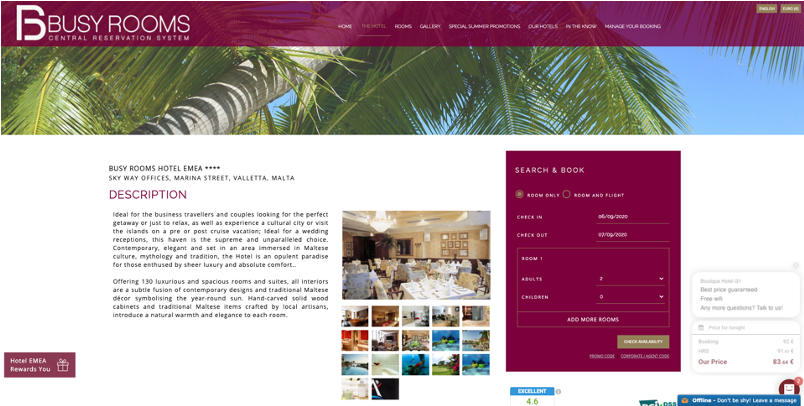
Standard single property IBE Demo with integrated widgets and flight option
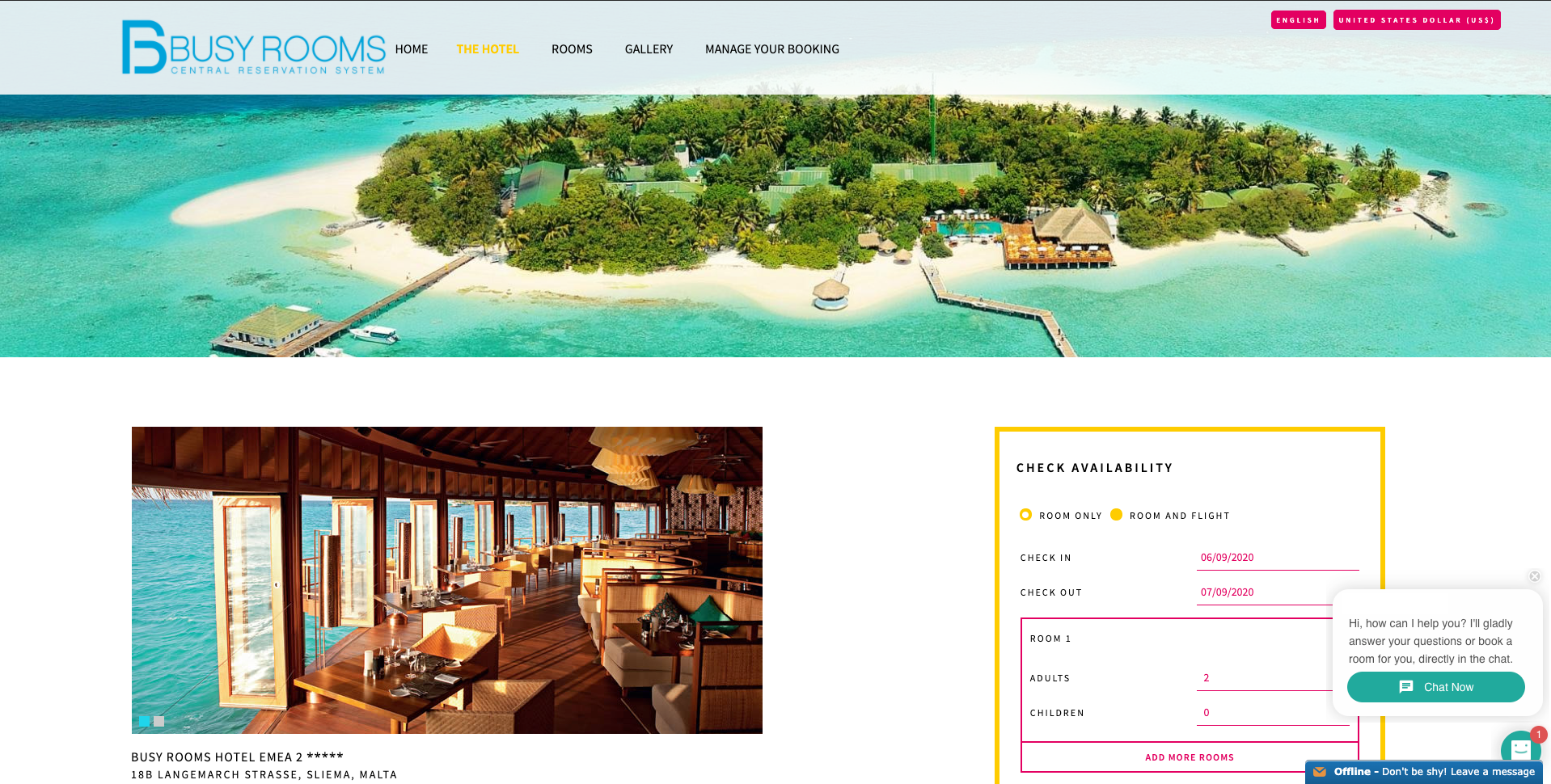
Dynamic packaging IBE
Single property IBE Demo with Dynamic packaging and integrated widgets
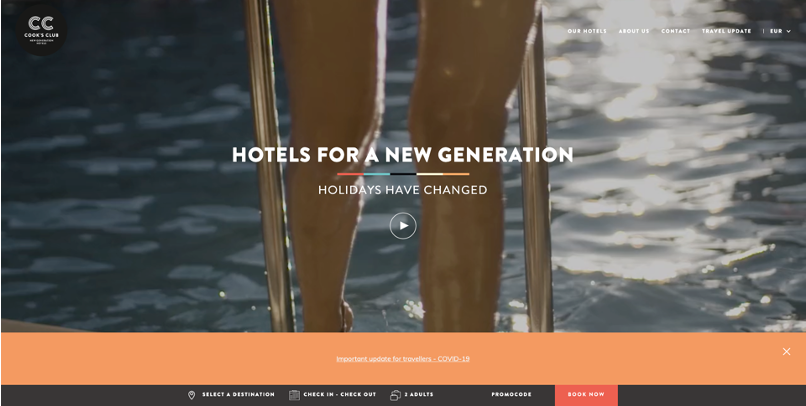
Multi-property hybrid IBE
Cooks Club - fully customized IBE utilizing Busy Rooms APIs
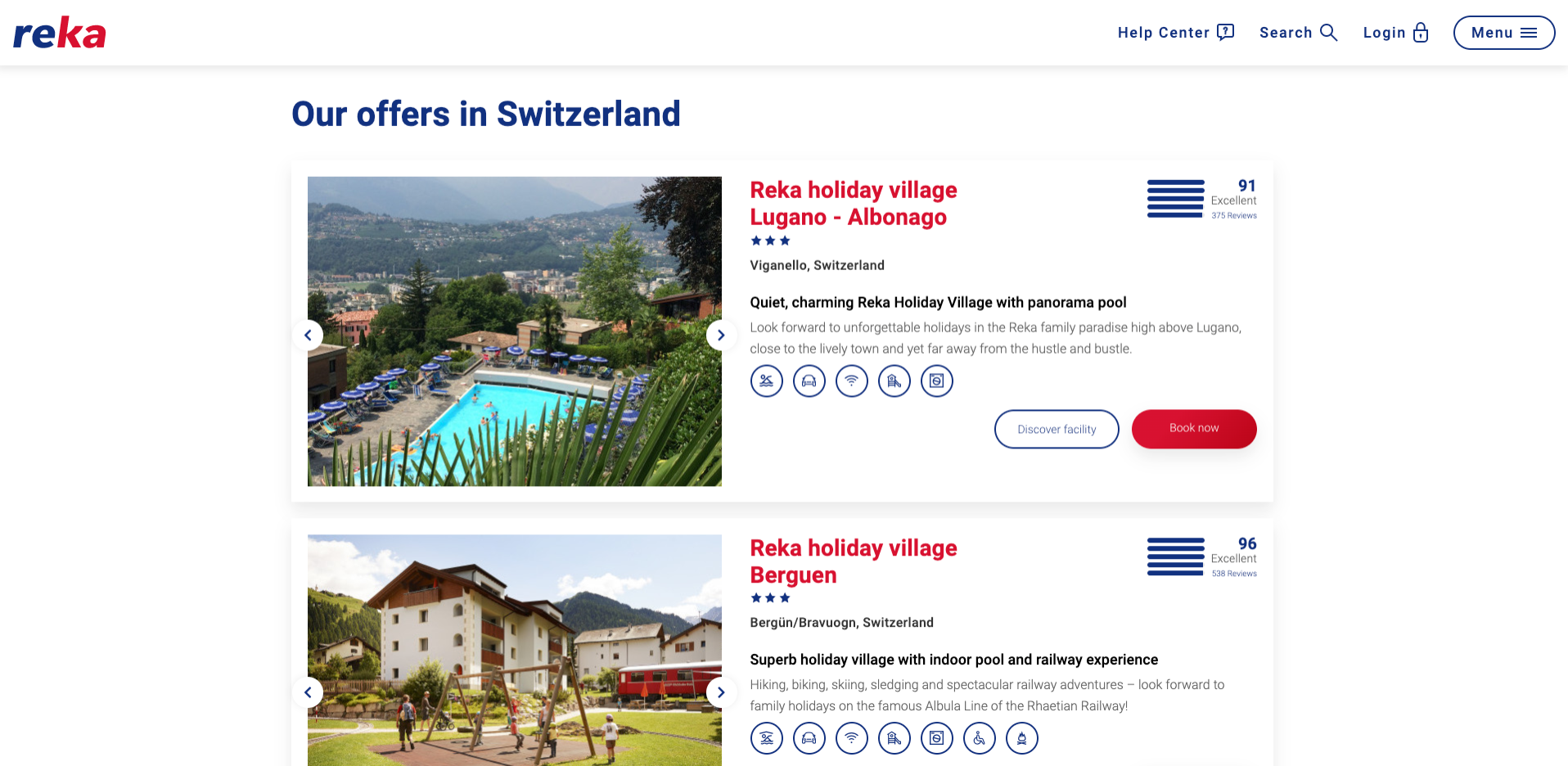
Fully customised IBE
Reka Holiday - fully customized multi-property IBE seamlessly integrated to custom-designed website
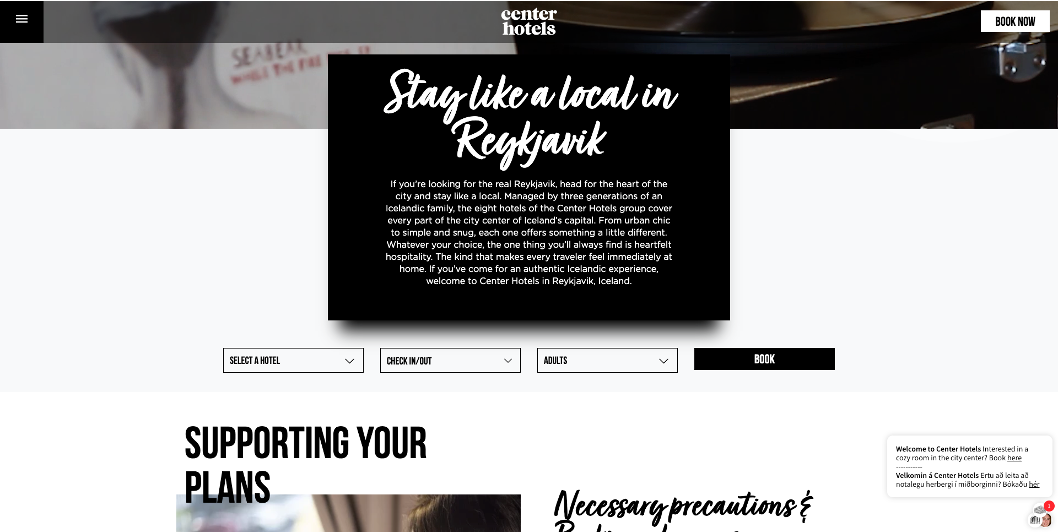
Multi-property IBE
Centre Hotels - multi-property IBE seamlessly integrated to custom-designed website
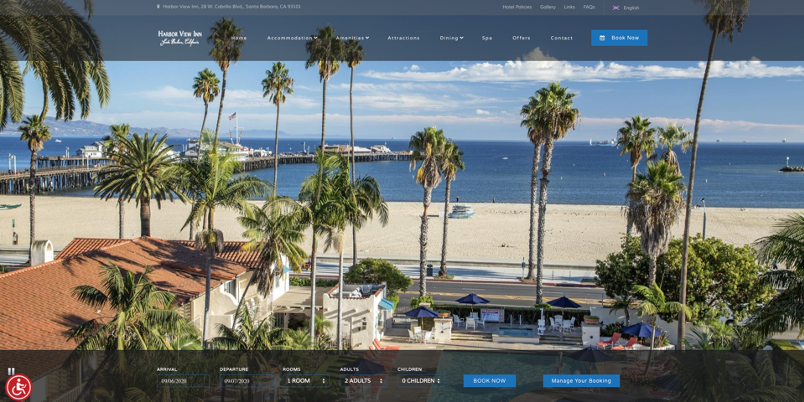
ADA/WCAG compliant IBE
Harbor View Inn - ADA/WCAG compliant accommodation only IBE with integrated widgets
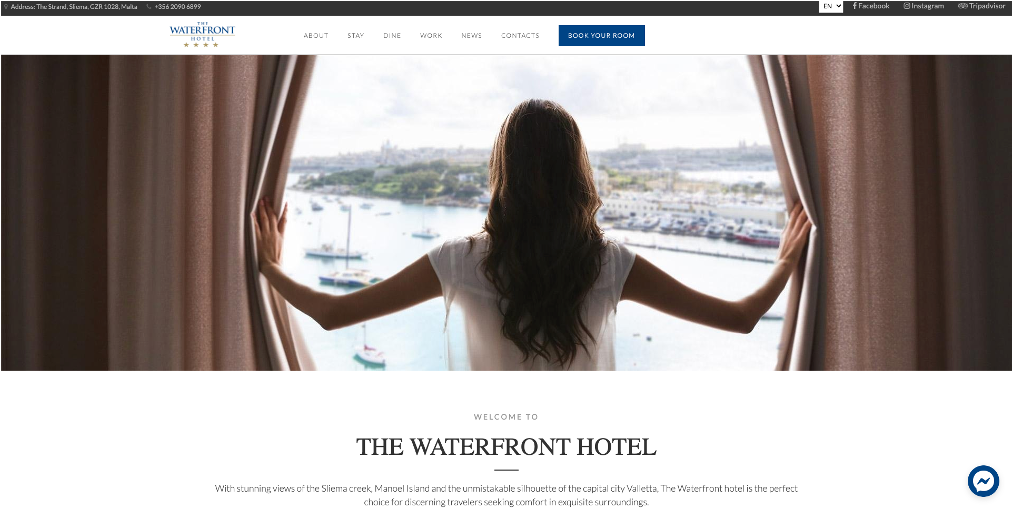
Single property IBE
Waterfront Hotel - standard IBE with CSS customizations and integrated widgets
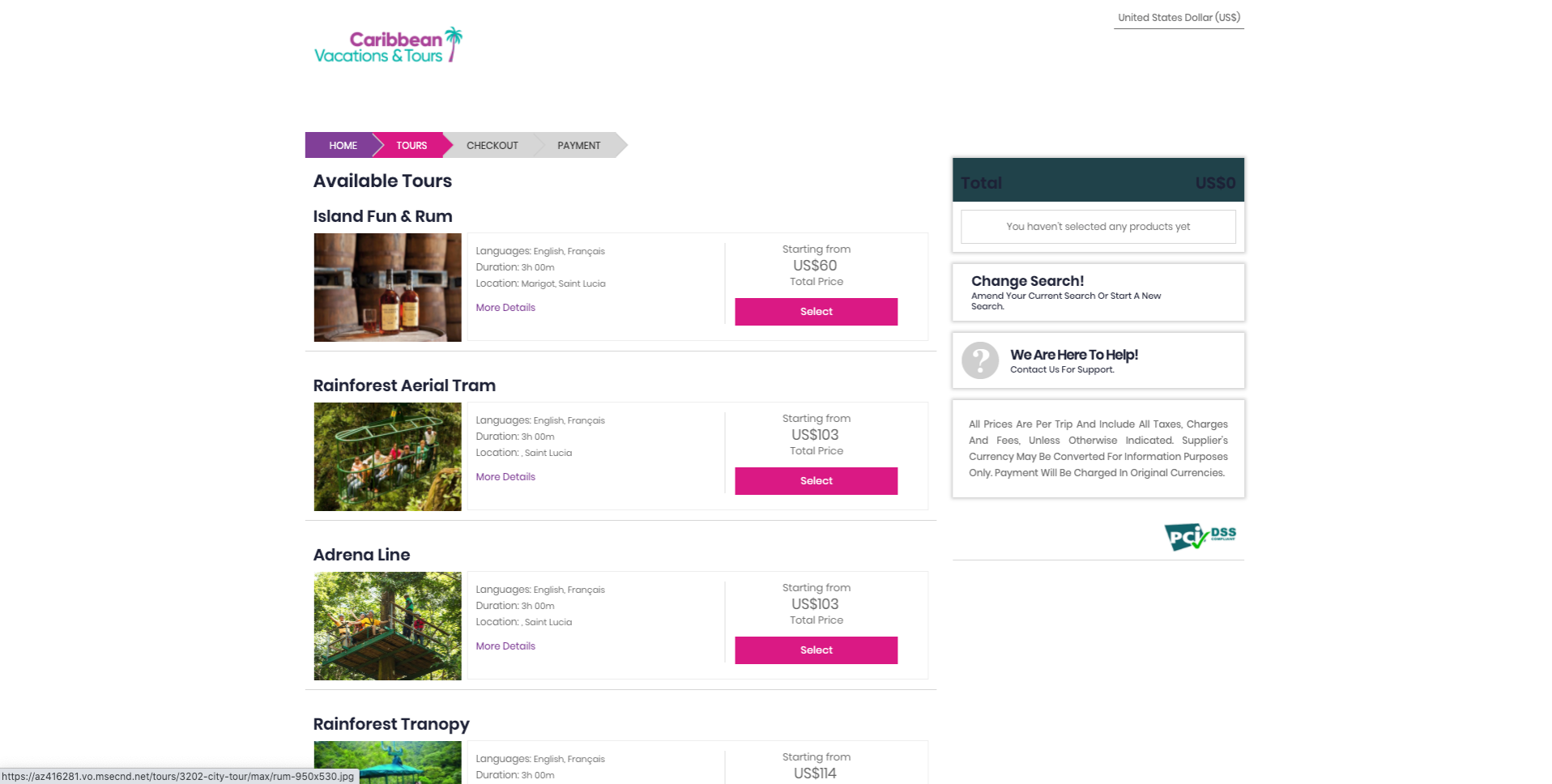
Caribbean Travel and Tours - Standard multi-destination Tours & Activity IBE
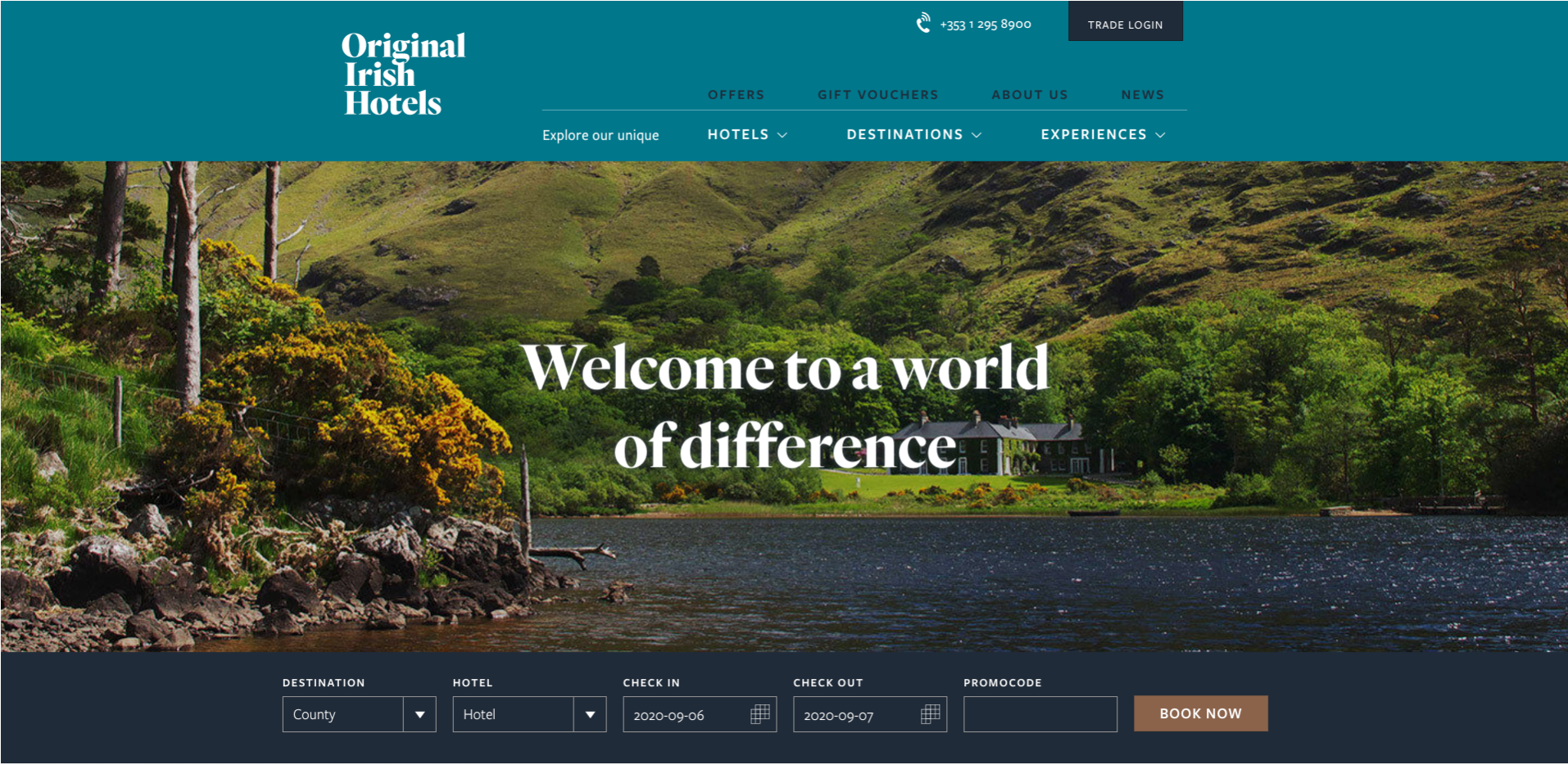
Travel Agent IBE
Original Irish Hotels - standard multi-property IBE with Travel Agent (trade) login
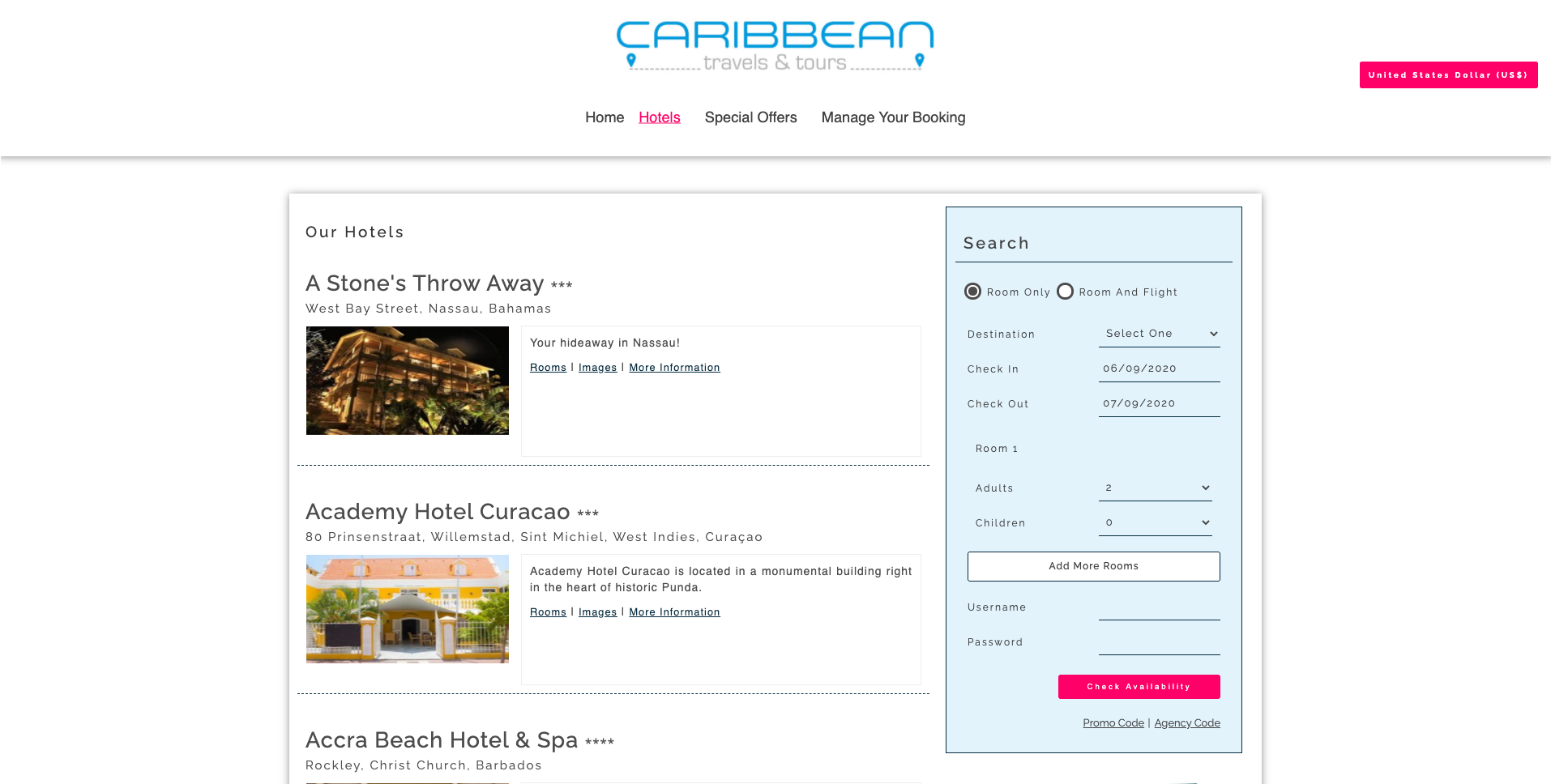
Caribbean Travel and Tours - multi-property / destination IBE with dynamic packaging of tours and optional flights
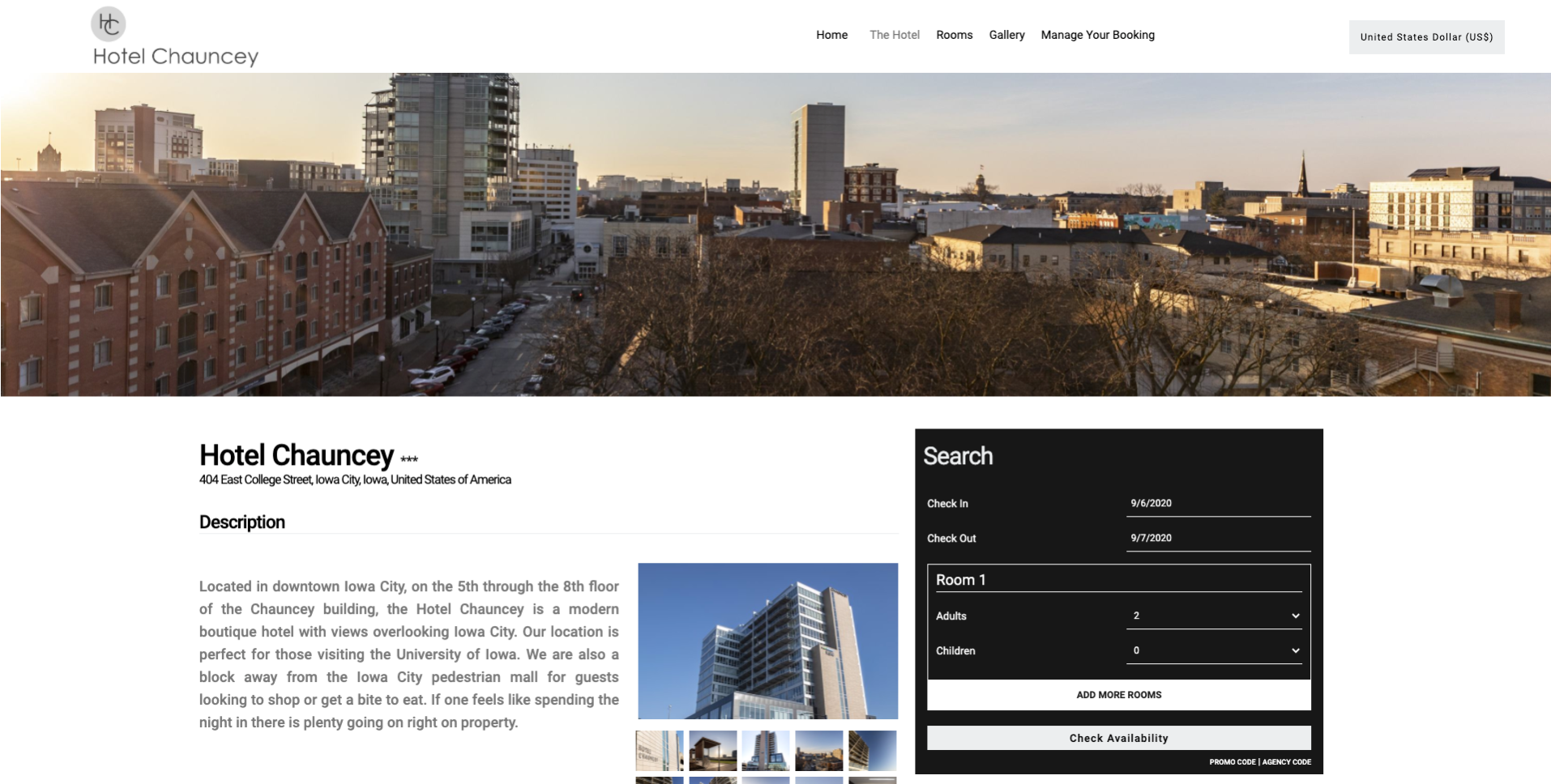
Hotel Chauncey - standard accommodation only IBE
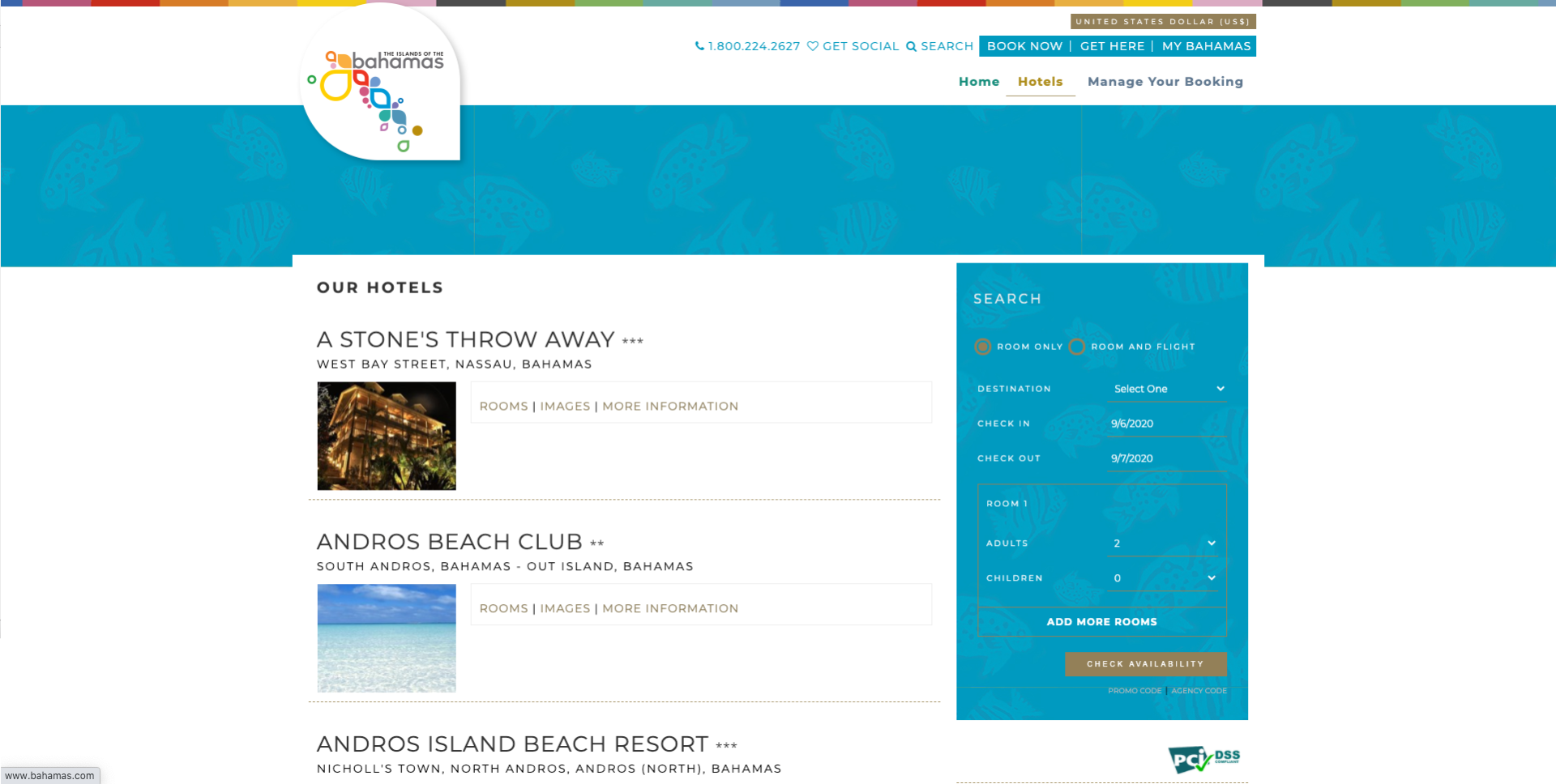
Destination IBE
The Bahamas.com - multi-property IBE with flight and custom integration to local non-GDS airlines
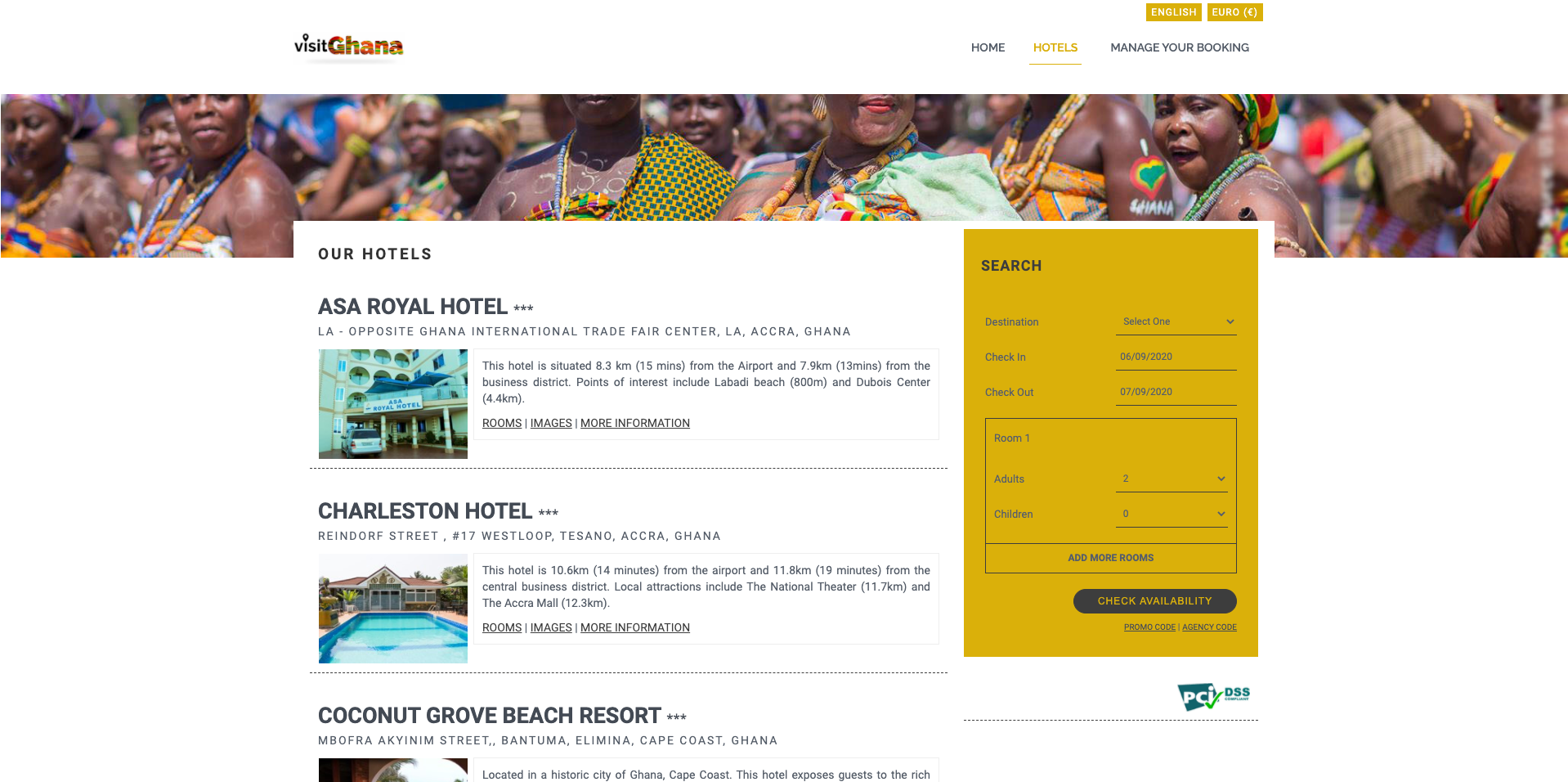
Visit Ghana - standard multi-property accommodation only IBE

Latest News

- Central Reservations System (CRS)
- Internet Booking Engines (IBEs)
- Channel Management & Distribution
- Revenue Management System (RMS)
- Website & Content Management Systems (CMS)
- Payment Services Gateway (PSG)
- Voucher Shop
- Finance Module
- Property Management System (PMS)
Head Office
We use cookies Google Analytics for measuring traffic and making your browsing experience better.
Symphony.Travel
With almost 22 years experience of developing online solutions for the travel industry, our 5th Generation of complete Flight Retailing solutions is designed to reflect the latest trends and needs. Regardless whether you service leisure or corporate segment, let your customers benefit from the one-stop shop concept with a complete travel experience at their fingertips - including complex flight searches, hotel stays and ancillary products.
traditional airlines included
low-cost carriers available
$ 1.3 million
of ancillary sales per year
bookings created in 2018
6.9 million
tickets auto-ticketed in 2018
of customers booking on mobile phone
Features & Benefits
The online travel industry channels are experiencing the fastest transformation ever. As a result, travel agent need to think not one, but three steps ahead in order to keep up and ahead of the competition. With almost two decades of experience, our products will help you to do so - including precise and efficient flight searches, variety of ancillary products, hotels or even a fully automated tool to enforce corporate travel policy.
- PERFORMANCE
SymphonyAirPricer
Symphonyancillary, symphonypromo, symphonyhotels, symphonybookingmanager, symphonymobile, symphonyloyalty, symphonyuserprofiles, symphonypaython, symphonyadministration, symphonymeta, symphonyticketing, symphonyreporting, personalized emails, symphonyarchitecture.
© 1998 - 2024 AARON GROUP | Privacy Policy
- Symphony.Aero
- Symphony.Corporate
- Symphony.Hub
- ABBREVIATIONS
- BIOGRAPHIES
- CALCULATORS
- CONVERSIONS
- DEFINITIONS

We've got 51 definitions for IBE »
What does ibe stand for , what does ibe mean this page is about the various possible meanings of the acronym, abbreviation, shorthand or slang term: ibe ., what does ibe mean.
see more »
Popularity rank for the IBE initials by frequency of use:
Couldn't find the full form or full meaning of ibe, maybe you were looking for one of these abbreviations:.
IBDP - IBDQ - IBDS - IBDSS - IBDWT - IBEA - IBEAC - IBEB - IBEC - IBED
Discuss these IBE abbreviations with the community:
Report Comment
We're doing our best to make sure our content is useful, accurate and safe. If by any chance you spot an inappropriate comment while navigating through our website please use this form to let us know, and we'll take care of it shortly.
You need to be logged in to favorite .
Create a new account.
Your name: * Required
Your email address: * Required
Pick a user name: * Required
Username: * Required
Password: * Required
Forgot your password? Retrieve it
Know what is IBE ? Got another good explanation for IBE ? Don't keep it to yourself!
Still can't find the acronym definition you were looking for use our power search technology to look for more unique definitions from across the web, use the citation options below to add these abbreviations to your bibliography..
Style: MLA Chicago APA
"IBE." Abbreviations.com. STANDS4 LLC, 2024. Web. 23 Sep. 2024. < https://www.abbreviations.com/IBE >.
Image Credit
The web's largest resource for, acronyms & abbreviations, a member of the stands4 network, image or illustration of, browse abbreviations.com, free, no signup required :, add to chrome, add to firefox, the ultimate acronym test, share an image of ibe.
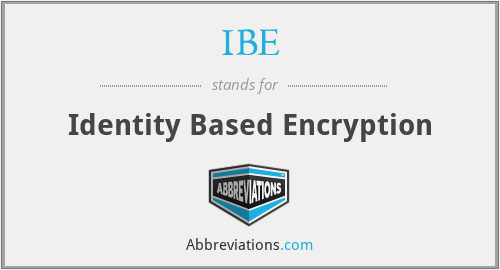
Image preview
Hearing impaired tip:
Sign language.

IMAGES
VIDEO
COMMENTS
An Internet Booking Engine should feature an intuitive interface that requires minimal training. This ease of use goes two ways: One way for staff, who must quickly navigate internal data insights, and one way for customers, who anticipate a seamless booking process. Your chosen IBE should boast a minimal learning curve to entice users immediately.
An Internet Booking Engine (IBE) is a software that revolutionizes the way travel companies operate. It empowers customers to book travel products and services online, enhancing their convenience. This user-friendly platform allows travellers to search for flights, hotels, car rentals, cruises, and other travel-related services, compare prices ...
What is IBE meaning in Travel? 2 meanings of IBE abbreviation related to Travel: 2. IBE. Internet Booking Engine + 1. Hotel, Booking, Internet. Suggest to this list.
Travel businesses from around the world are using various kinds of booking engines to automate their core operations with limited intervention of human staff. Below, we will examine their capabilities and how they differ depending on the type of travel business or business model. ... (IBE) Essentially, the Internet booking engine (IBE) is a ...
What is Internet Booking Engine (IBE)? Internet booking engine, which is also known as the online booking engine, is simply a new travel technology that focuses on simplifying the process of hotel bookings and reservations for both the customers and hotels. It works by creating an application on the hotel's official website and social media ...
The primary focus of Odysseus Solutions is a cruise booking engine that integrates with about 30 river and sea cruise lines. But it also has air and hotel IBEs in its IBE suite. All engines allow for B2C and B2B sales. For companies that don't have their own websites, Odysseus offers white label solutions.
An Integrated Booking Engine (IBE) is a software solution used by travel agencies, airlines, hotels, and other businesses in the travel and hospitality industry to facilitate the booking of travel-related services directly through their website or application. Key features of an Integrated Booking Engine typically include: Users can search for ...
B; Booking engine; Booking engine. A booking engine or Internet booking engine (IBE) is an online application that processes reservations of travel products made via websites, mobile apps, social media, or metasearch.. Booking engines have two main technology layers. On one side, there's a customer interface that accepts and processes search requests.
Internet Booking Engine: Shop & Book experience. The Internet Booking Engine (IBE) of ISO Travel Solutions is ready to work in any new or existing website or ecosystem. The framework consists of many individual components that you can mix and match to create a customer journey from start to finish, for an exceptional shop & book workflow.
A definition of ibe as used in the travel industry. To find the abbreviation, acronym, or term you're looking for, use the Search box (below) or click on any letter (above).
An IBE or internet booking engine processes reservations directly through a hotel's website. "For hotels, their webpage is often the best and most profitable booking source for obvious reasons: first, because there is no commission on these reservations, and second because they are generated without the help of a third party," Maurits explains.
An Internet Booking Engine (abbr. for 'IBE') is a software component that enables online travel product distribution. This piece of software is essential for selling and buying hotel reservations or airline tickets via the web. Online travel booking engine software of various sorts is used by travel-related companies to automate core processes ...
Synonyms for the word IBE: Internet Booking Engine, OBE, Online Booking Engine, a booking site on your website, direct booking website, Hotel Booking Engine. An IBE is a software tool on the hotel's own website to ensure that guests can easily book directly with the hotel. Often an IBE is often commission free and easy to integrate on the own ...
An internet booking engine lets customers specify their travel requirements such as city of departure, destination, departure&return dates, and class of travel. Crane Internet Booking Engine (Crane IBE) is a highly customizable, new-generation online booking engine for airlines. Its responsive interface is suitable for both mobile and web.
The Busy Rooms IBE is designed for usage with multi-property, a single property, travel agents/corporates, and meta-search. On top, you can decide to package flights, tours, excursions, and transfers, that all have separate backend modules to manage content, rates, and availability. Style via CSS or use our API to build your own booking engine
2 meanings of IBE abbreviation related to Booking: Share. 1. Internet Booking Engine + 1. Hotel, Travel, Internet. Suggest to this list.
Travel agencies internet booking engine (IBE) Symphony.Travel. With almost 22 years experience of developing online solutions for the travel industry, our 5th Generation of complete Flight Retailing solutions is designed to reflect the latest trends and needs. Regardless whether you service leisure or corporate segment, let your customers ...
Provide direct access to your travel agencies and reduce your airlines distribution costs. Airline Call Center Bookings. Feature rich graphical user interfaces for your call center to reduce training times. Global Distribution Systems. Connect to the world networks of travel agencies to increase your dictribution. Bi-Lateral Interline Bookings.
Discover Tourism Abbreviations: Dive deeper into a comprehensive list of top-voted Tourism Acronyms and Abbreviations. Explore IBE Definitions: Discover the complete range of meanings for IBE, beyond just its connections to Tourism. Contribute an Abbreviation: Have an abbreviation we haven't listed?Add your knowledge to our database and help expand our community's resource.
IBE According to the U.S. Census Bureau, Ibe is ranked #25954 in terms of the most common surnames in America. The Ibe surname appeared 946 times in the 2010 census and if you were to sample 100,000 people in the United States, approximately 0 would have the surname Ibe. 59.4% or 562 total occurrences were Black. 24.6% or 233 total occurrences were Asian. 11.1% or 105 total occurrences were White.
IBEin in Hotel commonly refers to Internet Booking Engine, a software application that enables hotels to facilitate online reservations and manage bookings effectively through their websites or third-party platforms. Explore categories such as Technology and Business for more information. Related abbreviations include OTA (Online Travel Agency ...
Discover Aviation Abbreviations: Dive deeper into a comprehensive list of top-voted Aviation Acronyms and Abbreviations. Explore IBE Definitions: Discover the complete range of meanings for IBE, beyond just its connections to Aviation. Contribute an Abbreviation: Have an abbreviation we haven't listed?Add your knowledge to our database and help expand our community's resource.
Discover Hospitality Abbreviations: Dive deeper into a comprehensive list of top-voted Hospitality Acronyms and Abbreviations. Explore IBE Definitions: Discover the complete range of meanings for IBE, beyond just its connections to Hospitality. Contribute an Abbreviation: Have an abbreviation we haven't listed?Add your knowledge to our database and help expand our community's resource.